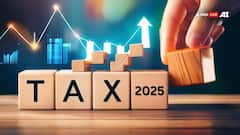Personal Loans For Big Purchases: Here Are Some Of The Pros And Cons
In a personal loan, your monthly payments remain consistent throughout the loan’s term, making it easier to budget. With a fixed interest rate, you will know exactly how much you’ll pay in interest

A personal loan is a practical option for financing significant purchases or one might need for the unplanned purchase. A personal loan offers several advantages when compared to other lending methods. A personal loan can be one of the most significant tools when it comes to making a big purchase. However, just like everything else personal loans also have their share of advantages and disadvantages.
Here Are Some Of The Advantages Of Taking A Personal Loan
Fixed Interest Rates
Unlike credit cards, which often have fluctuating interest rates, personal loans typically come with fixed rates. This means your monthly payments remain consistent throughout the loan’s term, making it easier to budget. With a fixed interest rate, you will know exactly how much you’ll pay in interest, providing clarity and predictability.
Potential For Lower Interest Rates
Personal loans often have lower interest rates than credit cards, especially for borrowers with strong credit scores. Lenders typically view personal loans as less risky than credit cards, making them more favourable for borrowers. Personal loans can be secured or unsecured, with secured loans (backed by collateral like a house or car) offering even lower interest rates.
Lump Sum Loan
One of the primary advantages of using a personal loan for large purchases is receiving a lump sum upfront. Unlike credit cards, which may have spending limits, a personal loan provides the full amount needed immediately, allowing you to finance the entire purchase. This simplifies debt management, as you only have one loan with a clear repayment schedule, rather than multiple credit card balances spread across billing cycles.
However, There Are Some Disadvantages To Consider Before Taking Out A Personal Loan:
High Interest Rates
While personal loans generally have lower interest rates than credit cards, they can still be high, particularly for unsecured loans, which don't require collateral. Secured loans typically offer lower rates due to the collateral provided, but unsecured loans carry a higher risk for lenders and, therefore, higher rates.
Shorter Repayment Term
Personal loans typically have repayment terms ranging from one to seven years, which is much shorter than mortgages or auto loans. While a shorter term means paying off the loan faster, it also results in higher monthly payments.
Debt Burden
Taking on a personal loan adds to your overall debt, which could strain your budget, especially if you already have existing debts. Before committing, it's important to assess whether you can comfortably manage the additional loan payment without sacrificing essential expenses. Failing to make timely loan payments could lead to financial difficulties, making it harder to handle emergencies or unplanned expenses.







































